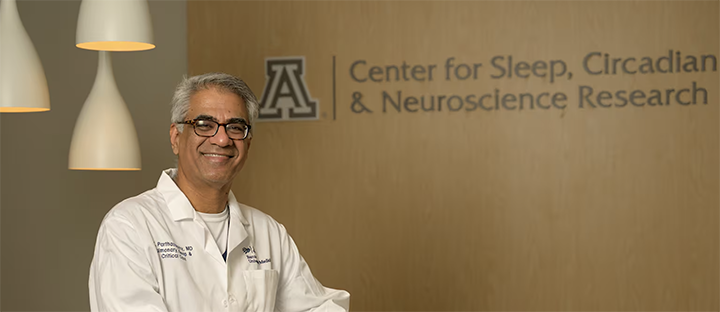Need Assistance? Call us today! 602-478-9713
It may feel like a significant amount of time has passed since the COVID-19 global pandemic to where we are today. The COVID-19 era, stretching from late 2019 through much of 2021 and beyond, will be remembered for its global upheaval and the tragic loss of many lives.
USAFacts estimates over 13.7 million adults in the U.S. are experiencing long COVID, which equates to about 5.3% of the adult population. Long COVID symptoms can vary widely and may include fatigue, difficulty breathing, and brain fog. Long COVID remains a significant health concern and according to COVID-19 researchers at the National Institutes of Health and the Cleveland Clinic, it is estimated that about 40% of people with Long COVID report sleep issues.
With this objective, researchers at the University of Arizona Health Center for Sleep & Circadian Sciences in Tucson, AZ, are seeking participants from diverse backgrounds who have not fully recovered from long COVID and are experiencing various sleep disorders for a new clinical study endorsed by the National Institutes of Health.
During a recent interview with José Zozaya of Kgun9 News, Dr. Sairam Parthasarathy, Director with UAHS Center for Sleep & Circadian Sciences shared “the team feel like there are certain sectors of society that are left behind, which is part of the motivation to find the best treatment options for these patients”.
Dr. Sairam Parthasarathy emphasized that certain groups, including women, rural residents, and individuals of various ages who may not have the time or financial resources to participate in studies, are frequently overlooked. To clarify the objectives of the new NIH-funded study, Parthasarathy, director of The Center for Sleep and Circadian Sciences at UAHS, explained that they plan to focus on two specific groups of people.
"These are individuals who had a COVID infection in the past and subsequently developed sleep problems," he stated. "They either experience excessive daytime sleepiness or have difficulty sleeping at night, known as insomnia. Our goal is to identify the most effective treatments for this population."
Parthasarathy explained that in this project, his colleagues will monitor participants over a 14-week period. The advantage for participants is that they will spend most of the study sleeping in their own beds. Approved participants will only need to visit the researchers in person three times after the initial screening.
"We will provide participants with a smartwatch that monitors their sleep. This data will be transmitted to us via the internet," Parthasarathy said. "One of the advantages of this approach is the ability to conduct the study remotely.
The research team is focused on ensuring that sleep apnea does not skew the study results or participants' reactions to treatments. To address this, qualified participants with sleep apnea will receive a free CPAP machine. "We want to eliminate sleep apnea from the equation," Parthasarathy said. "It could be acting like an anchor, preventing progress."
Parthasarathy outlined the study's two participant groups:
To facilitate participation, the study will cover transportation costs for the initial screening and three follow-up visits.
To learn more about RECOVER: Researching COVID to Enhance Recovery Click Here
